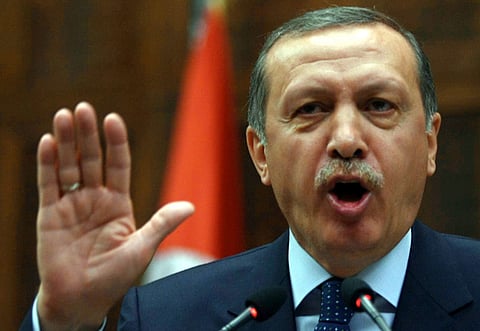Erdogan emerges stronger
The referendum was a resounding victory for the Turkishgovernment, but the prime minister wants even more votes

There is just no beating him. Turkey's mildly Islamist Prime Minister Recep Tayyip Erdogan has once again persuaded millions of Turks to back him, this time in a September 12 referendum on constitutional changes.
The reforms will further erode the generals' influence and increase democratic control over the courts. Kemal Kilicdaroglu, leader of the opposition Republican People's party (CHP), had tried hard to portray the reforms as a final assault on the secular order of Ataturk, but the voters were unswayed.
As many as 58 per cent said yes, on a turnout of almost 77 per cent. Analysts suggest that half the yes voters were merely backing Erdogan's Justice and Development (AK) party. The Nationalist Action party (MHP), which campaigned against AK for being too soft on the rebellious Kurds, took an even bigger drubbing than the CHP. Many in its main strongholds voted yes.
Ambitious plans
After his triumph, Erdogan was quick to pledge a complete rewrite of the 1980 Constitution, which was imposed after a military coup. It will have to wait until next year's general election, which is due next summer. There is plenty of speculation that, if AK repeats its success yet again, Erdogan will then push for the presidency, which falls vacant in 2012. Critics say he may become Turkey's next sultan. But such worries are exaggerated. Turkey is in the midst of historic reforms — and the opposition's failure to embrace them explains why it keeps losing.
The AK party has been in government since 2002, pursuing an agenda of broadly democratic reform and market liberalisation. This was enough to persuade the European Union to open membership talks with Turkey in 2005. Spurred on by a new class of Anatolian entrepreneurs, the economy has thrived. Turkey's growing influence has fostered a new national confidence that has replaced decades of paranoia and prickliness.
Yet the 42 per cent of Turks who voted ‘no' in the referendum remain deeply suspicious of Erdogan and the AK. Turkey is a divided country. The no voters form a slim crescent ringing its western and south-western shores. With their mentors in the army defanged and the CHP failing to gain ground, these "white Turks" feel increasingly vulnerable. Secular Istanbul editors joke darkly about moving to Izmir, which voted no.
Their worries are not wholly unfounded. Ever since his re-election in 2007, Erdogan has unabashedly sought to silence dissident voices. He has had a lengthy run-in with the country's biggest media conglomerate, the Dogan group, which has now taken one show off the air and fired a number of secular columnists. Pressed for an opinion, one surviving soul says "I am too frightened to talk". This makes it even less likely that mainstream titles will make space for Kilicdaroglu's claims that AK is steeped in corruption. Turkey's media bosses tend to value their other business interests over a free press. Meanwhile, the only overtly Islamist party, Saadet, which had previously been nibbling away at AK's pious base, is riven by internal squabbles.
Yet Erdogan cannot afford to be complacent. Most Kurdish voters in the south-east complied with the wishes of the largest Kurdish party to boycott the referendum. This in turn points to the enduring power of the Kurdistan Workers' party (PKK), which has been waging a violent separatist campaign for the past 26 years. The PKK has threatened to call off its recent unilateral ceasefire unless Erdogan makes further concessions on Kurdish rights and sticks to his promise to produce a new constitution.
The MHP's poor showing should free Erdogan to respond to Kurdish demands. The changes to the judiciary mean that antediluvian judges and prosecutors no longer stand in his way. Kilicdaroglu has said he is ready to help draft a new constitution. Past experience suggests that both the Kurdish issue and a new constitution need some input from the opposition. So long as the Kurdish problem, in particular, festers, Turkey cannot be a truly healthy democracy.



